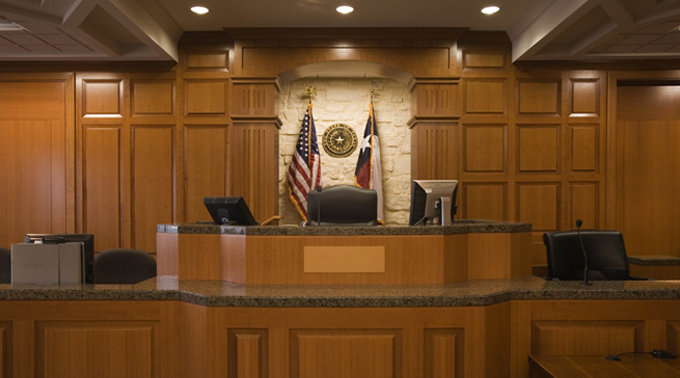Practice Area
Theft
Understanding Texas Theft Laws
Theft is a serious offense that involves the unlawful taking of someone else’s property without their consent, with the intent to permanently deprive them of its use. In Williamson County, Texas, theft is a crime that is taken seriously, and the consequences can vary depending on the nature and value of the stolen property. This article will delve into the different types of theft, the elements that constitute each offense, and the potential legal ramifications individuals may face if charged with theft in Williamson County.

Types of Theft
Theft is a broad term that encompasses various specific types of stealing, including larceny, robbery, and burglary. In Williamson County, Texas, theft is defined as the physical removal of an object capable of being stolen without the owner’s consent, with the intention of permanently depriving the owner of its use. It is important to note that the offender may not necessarily intend to keep the property for themselves; an intention to destroy, sell, or abandon the stolen property is also considered theft.
Larceny: Trespasser Taking & Carrying Away of Personal Goods
Larceny is one form of theft and involves the trespassory taking and carrying away of personal goods from another person’s possession with the intention to steal. In Williamson County, Texas, the offense of larceny requires three conditions to be met:
-
- The goods must be removed from the possession of another without the owner’s consent.
- The goods must be physically taken and carried away, even if the movement is slight.
- There must be an intention to permanently deprive the owner of their property.
It is essential to differentiate larceny from situations where someone borrows another person’s property with the intent to return it or takes goods mistakenly believing they are their own. In such cases, larceny is not committed.
Robbery: Theft Involving Violence or the Threat of Force
Robbery is another form of theft that occurs in circumstances involving violence or the threat of force. This offense can take various forms, ranging from muggings to bank robberies. In Williamson County, Texas, robbery carries more severe penalties compared to larceny. Statistics on robbery often provide valuable insights into the overall crime rate since victims are more likely to report such incidents to the police, leading to accurate record-keeping.
Burglary: Breaking & Entering with Intent to Commit a Felony
Burglary involves the breaking and entering of another person’s premises with the intent to commit a felony inside. Traditionally, English common law limited burglary to breaking into dwellings at night, with separate offenses for daytime entries known as housebreaking. However, in the 20th century, the definition of burglary expanded to include break-ins at any time of the day in any fixed structure, vehicle, or vessel. While theft is often the primary motivation for burglars, the intention to commit other offenses, such as rape, can elevate a trespass into a burglary.
Classifications & Penalties
Legal systems, including those in Williamson County, Texas, often categorize theft offenses into different classes based on the value of the stolen goods. This classification helps determine the severity of the offense and the corresponding penalties. In Williamson County, theft is typically divided into grand theft and petty theft.
Grand Theft: Felony/Misdemeanor Depending on Severity & Jurisdiction
Grand theft occurs when the value of the stolen goods exceeds a certain threshold set by state statutes. In Williamson County, Texas, grand theft is considered a serious offense and may result in felony charges. California Penal Code § 487 provides an example, stating that grand theft involves theft of goods exceeding $950 in value, as well as specific items like automobiles and firearms. The classification of grand theft as a felony or misdemeanor depends on the severity of the theft and the jurisdiction.
Petty Theft: Misdemeanor Offense
Petty theft, on the other hand, refers to theft that does not meet the criteria for grand theft. It is generally considered a misdemeanor offense in Williamson County, Texas. Petty theft involves the unlawful taking of property below the threshold set for grand theft. The penalties for petty theft are typically less severe than those for grand theft.
Modern Challenges of Theft Laws
As society continues to evolve, so do theft laws, with jurisdictions adapting to new forms of property and emerging challenges. Many legal systems, including those in Williamson County, Texas, have expanded their theft statutes to encompass modern forms of theft that may not involve physical or tangible property. Cybertheft, for example, involves using a computer to deprive others of property or rights, such as unauthorized access to a bank’s computer system to transfer money from others’ accounts. Additionally, theft laws now cover the theft of intellectual property, including copyrights, trademarks, patents, and designs.
Seeking Legal Assistance for Theft Charges?
Understanding theft laws in Williamson County, Texas, is essential for individuals to navigate potential legal issues and protect their rights. Theft encompasses various offenses such as larceny, robbery, and burglary, each carrying its own set of elements and consequences. The classification of theft as grand theft or petty theft depends on the value of the stolen property. By staying informed about evolving theft laws, individuals can better protect themselves and their property in the modern world.
If you or someone you know is facing theft charges in Williamson County, Texas, it is crucial to seek legal guidance from an experienced attorney. It is important to consult with a legal professional to receive personalized advice and guidance in theft cases. They can provide valuable advice, assess the specifics of the case, and guide individuals through the legal process, ensuring their rights are protected and they receive a fair outcome.

Perches Law, PLLC
Since 2005
Office Address
Round Rock, TX 78664
Copyright © 2023 Perches Law, PLLC
